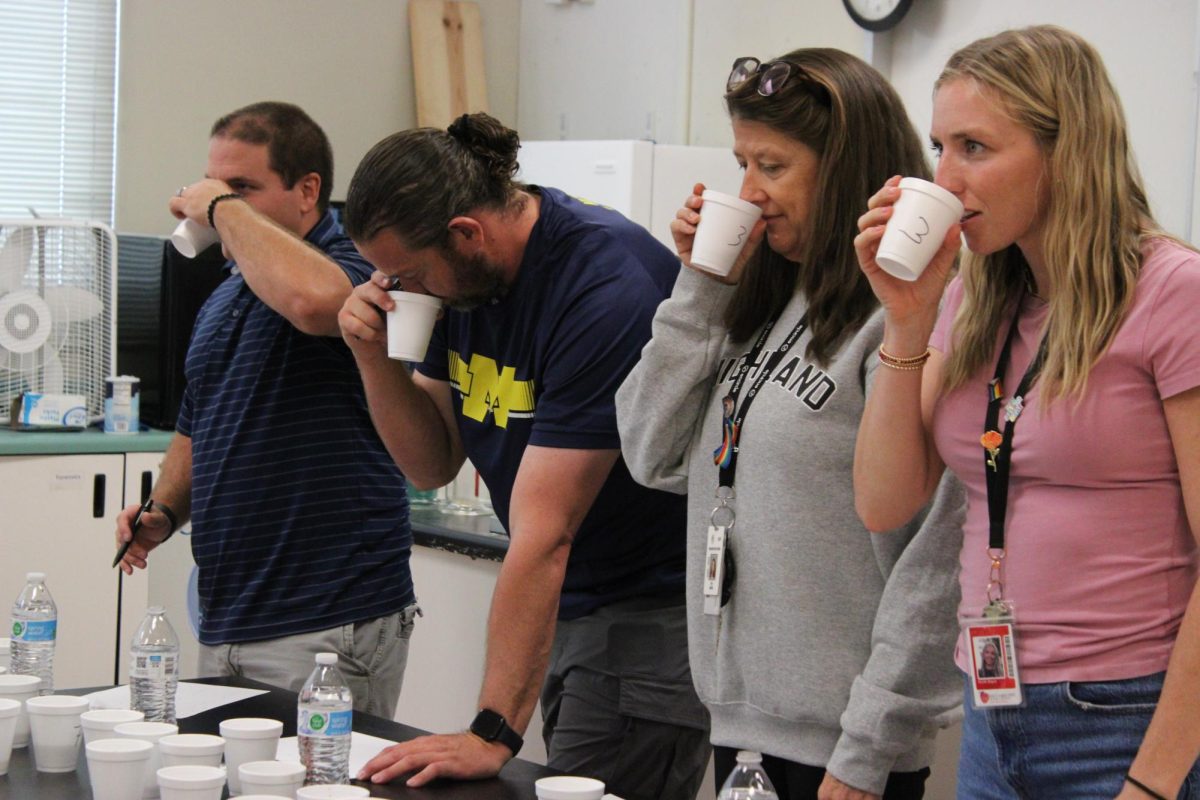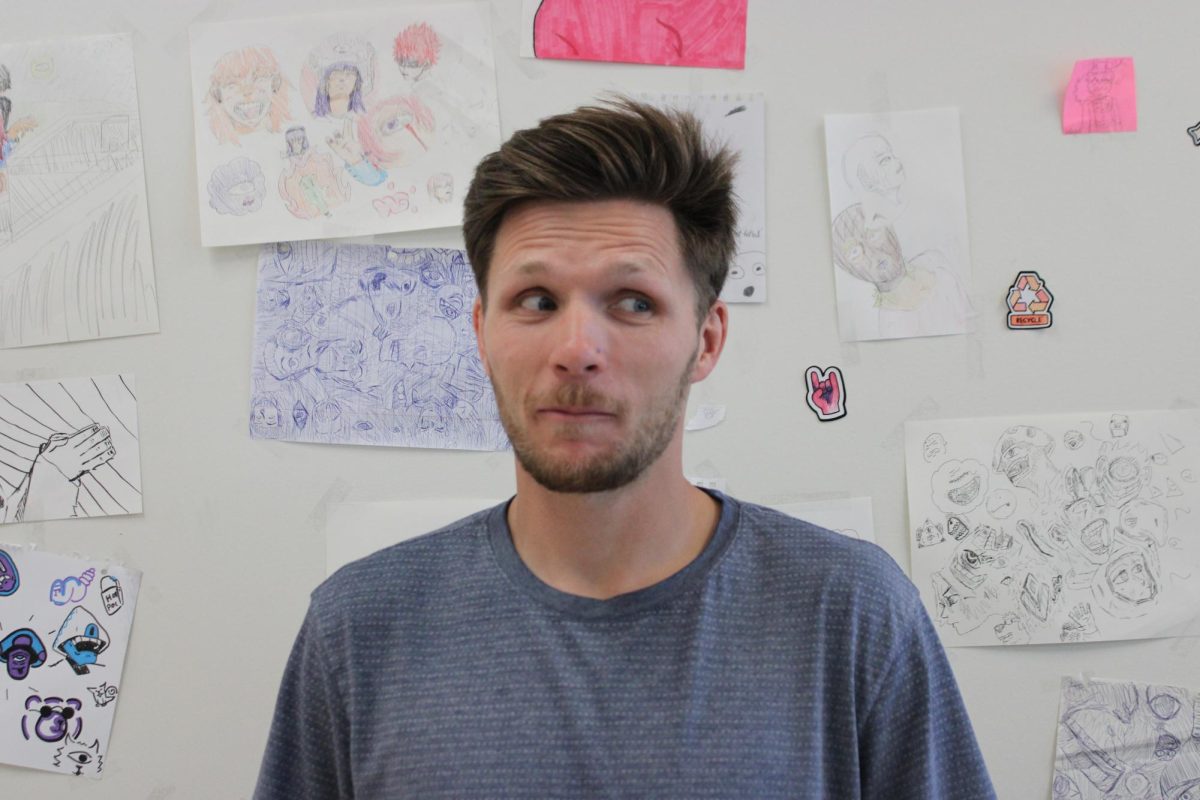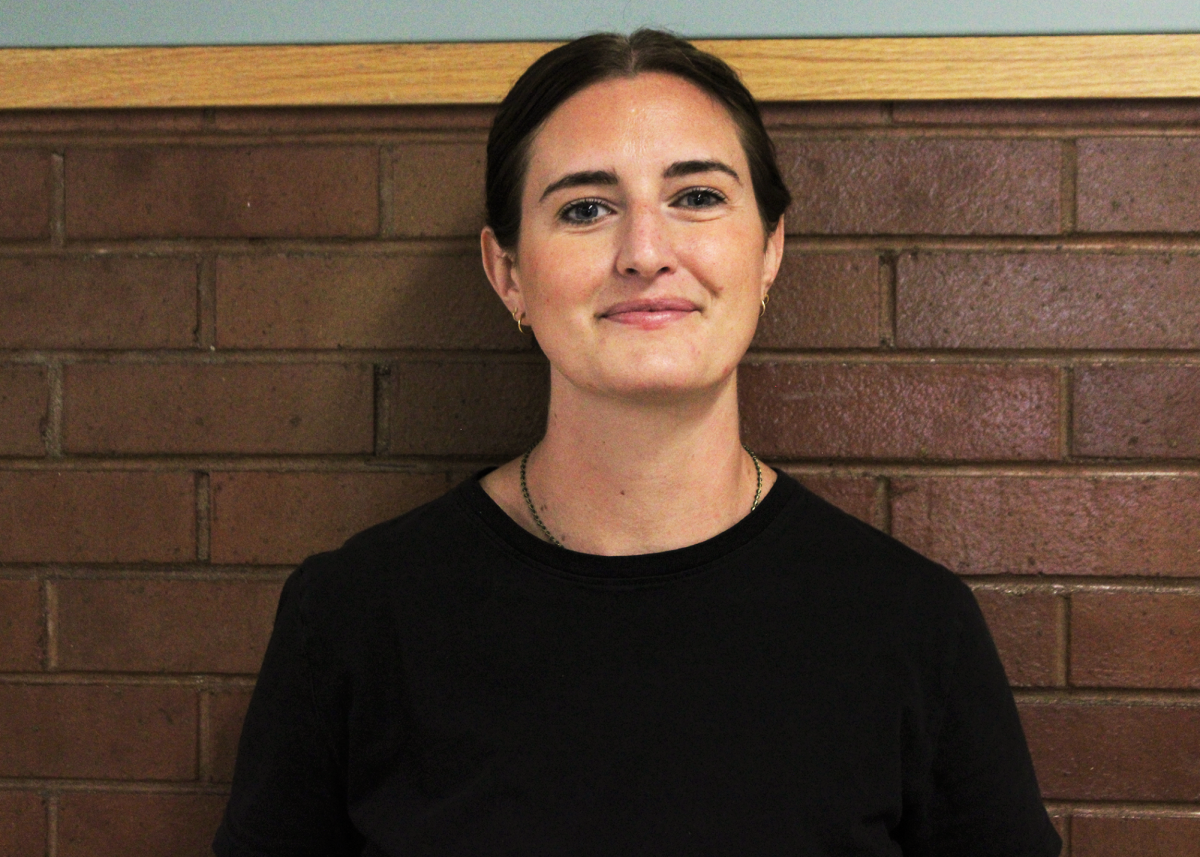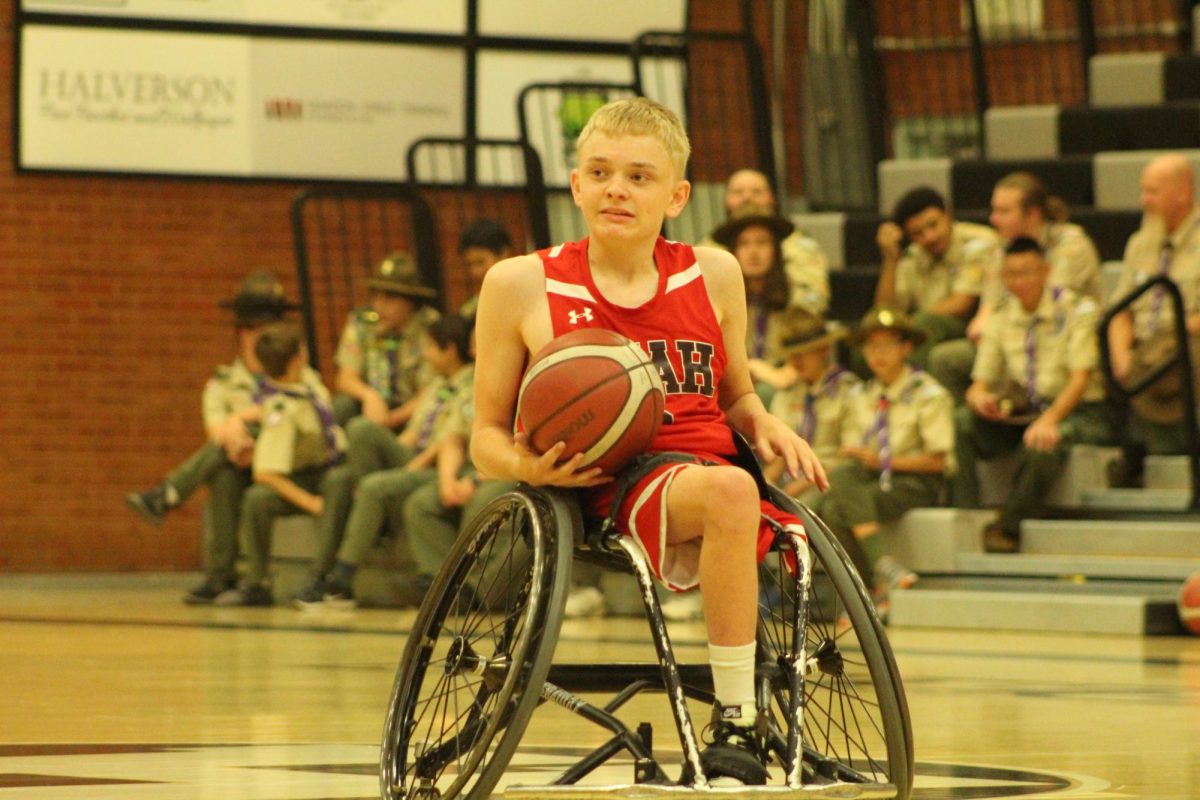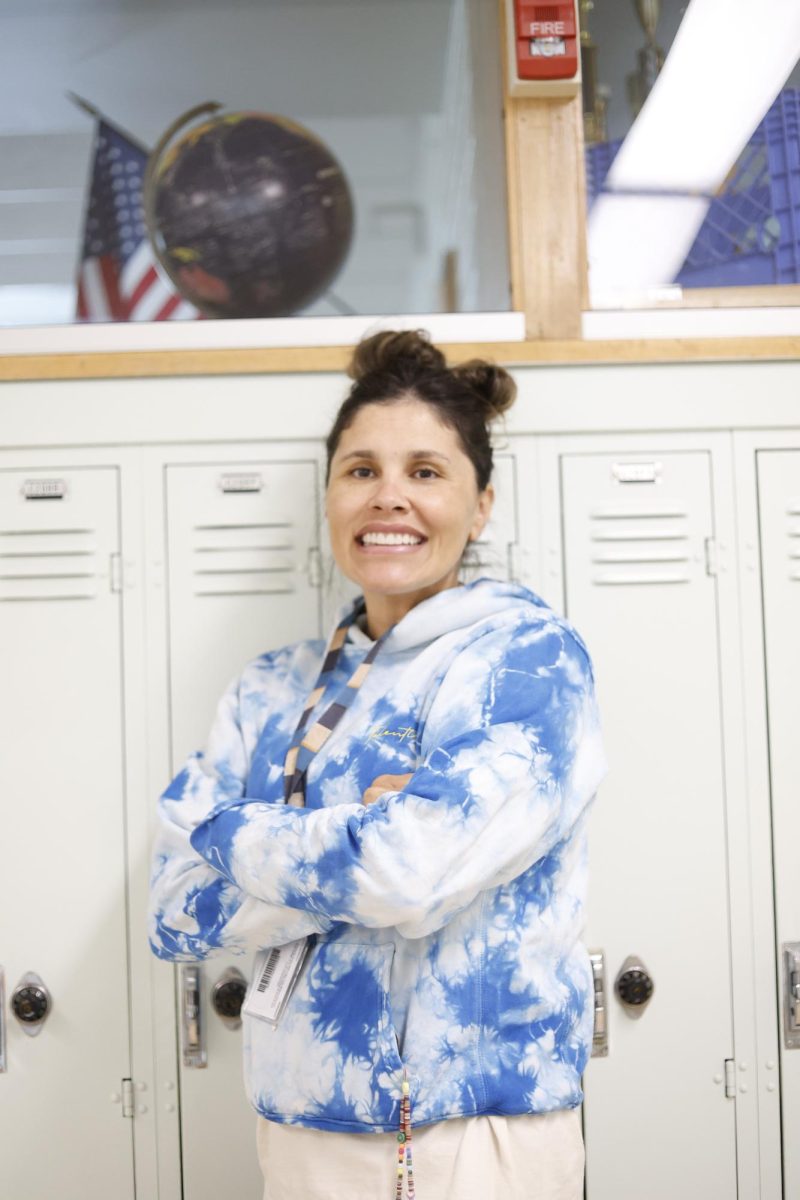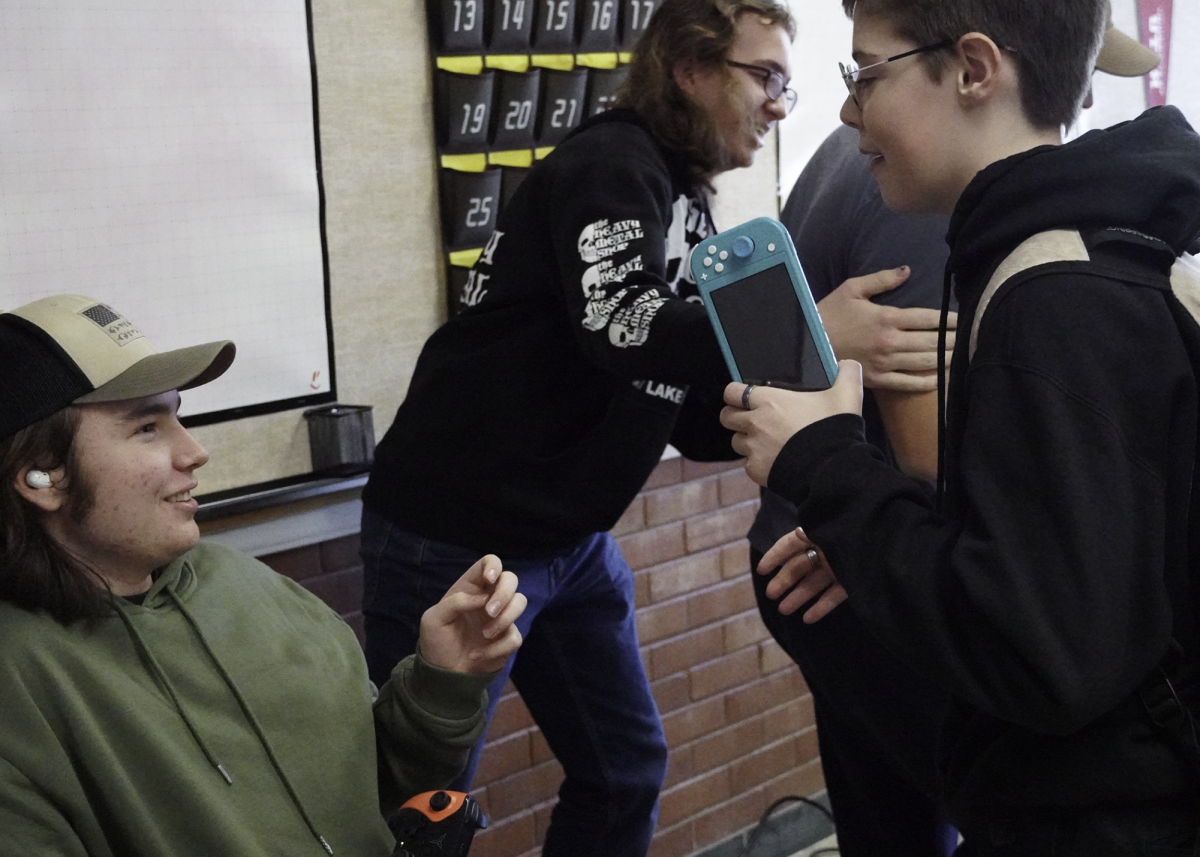As a ninth grader, Highland senior Travis Carpenter and his family faced an impossible decision. When Carpenter was six months old, he was diagnosed with Neurofibromatosis, or NF, a genetic disorder that causes tumor growth in the nervous system. The condition effects roughly 100,000 people in the United States.
Carpenter started developing a tumor on his femur at an early age. It got bigger and bigger over time and made his bone weak, which eventually led to multiple accidents and broken legs. Eventually, Carpenter and his parents were faced with the impossible choice: continue living with the pain in his leg, or amputate it.
“It made my bone super weak and that made it break super easily,” Carpenter said. “I decided to amputate my leg just to get rid of all the pain and not risk breaking my leg doing activities outside of school or when I’m far away from a hospital.”
Carpenter’s leg was doing more harm than good at that point in his life. So even though it was a difficult choice to make, it essentially freed Carpenter from that which was hindering his potential.
With the leg constantly in pain and the risk of injury, he could not be active. Now, he’s thriving as an athlete and student.
For his family, watching their son go through such a difficult time was heartbreaking. But they know amputation was the best of two terrible options.
“He was sitting on the sidelines, and he didn’t want to do that,” Carpenter’s mom Kelly Carpenter said. “The middle was going to be messy and hard, but the end result was going to make life better for Travis. I think since the amputation and through the recovery, it’s much more than we could’ve ever imagined for him.”
Carpenter was involved in sports since a young age. As a kid, he wanted to grow up and be a crew chief for race cars. Although it seemed as though this rare disease could squash his dreams of growing up an athlete, Carpenter turned to a different realm of sports that could keep him doing what he loved: adaptive sports.
Carpenter plays for the Utah Rush, which is Utah’s Junior National Wheelchair basketball team. They do multiple tournaments around the country during a season that lasts about six months. Last year, they finished eighth in the national tournament.
In September, the Rush had an exhibition fundraiser game against Highland’s varsity boy’s basketball team. It wasn’t even close. It was evident that the Rams were better at basketball on their feet rather than in wheelchairs as the Rush were able to dominate the Rams in a 60-19 victory. Carpenter finished with a 12-point game which doubled the Rams’ top scorer.
“I think it’s cool to watch other people try and play wheelchair basketball against a really good team,” Carpenter said. “I thought it was a little bit funny that varsity basketball players struggled in a basketball game.”
Basketball has been a good opportunity for Carpenter to pursue a lifelong goal to stay active and his parents believe that it has had many positive effects on Carpenter, whether that is physically or mentally.
“He’s gotten a lot stronger having an activity like that and being able to be pushed by teammates in a team setting that he never really had before,” Carpenter’s father Scott Carpenter said.
Wheelchair basketball is legit. It takes a ton of skill, some might argue even more than basketball outside of a wheelchair. Athletes not only have to juggle the same elements of regular basketball but are in a wheelchair the entire time.
With the majority of professional basketball players agreeing that the key to a good shot is leg power, it’s imaginably harder to take shots from a seated position. Strength and stamina are necessary, and upper-body strength is critical.
Carpenter is a skilled basketball player, but this is not the only sport that keeps him busy. He also plays tennis when it’s warm, and skis when it gets cold. Today’s advanced technology allows Carpenter to take part in almost anything that he desires.
“He’s wanting to try a variety of things like any other kid would,” Scott said.
Taking part in all the new realities that came to light for Carpenter has been a huge boost for him.
“I think he’s gotten more confident,” Kelly said.
Carpenter’s leg was the only thing holding him back. That’s why after April 29th, 2021 – the date of his amputation – had passed, it was all gas no brakes for Carpenter. Kelly could see Carpenter start to push himself beyond his limits because he no longer had to be worried about a leg injury. In fact, his parents can barely keep up with all Carpenter wants to accomplish.
“It’s hard holding him back from anything, so we help him do everything that he can,” Scott said.
Along with Carpenter being physically active, he has been in front of the curve mentally and emotionally from a young age as well, which has been proven on multiple occasions throughout his life. He didn’t just make the decision to amputate his leg, he donated his leg to science.
“It seems to us like a really mature decision to do that at the age that he did it,” Scott said.
Scott believes that because his son has been through so many trials at a young age, it has made Carpenter mature beyond his years. It would be easy for Carpenter to just drift through life without purpose being born into such a difficult situation, and Carpenter has done just the opposite.
“He’s always positive. He’s just like ‘well this is what it is, I don’t like it, but I can’t change it. So I’m going to make the best of it,’” Kelly said. “He really doesn’t get down on himself. He thinks about what he can do and says, ‘let’s do it.’”
He’s takin his maturity a positivity a step further by inventing his own mini holiday that comes each year on April 29th. It’s a tradition that continues to spread its influence farther after each year of its life. He calls it “Donuts and Deeds”.
“Everyone can have a donut and do a good deed,” Kelly said. “Or as Carpenter would say it, ‘do the good deed first and then get the donut’. He wanted to see the good deeds that people were doing out across the U.S. and in other places.”
It’s safe to say that Carpenter is an inspiration to the people around him because he’s an ordinary kid that does extraordinary things. Whether that is dominating Highland’s basketball team in a wheelchair or spreading optimism around the country, Carpenter is proving that anything is possible.
It just takes belief and work.




